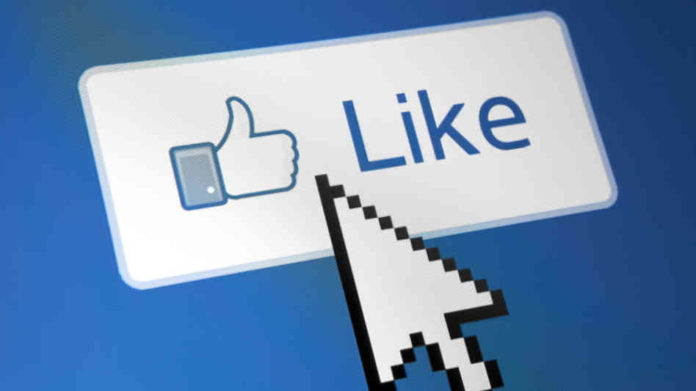
Computers using digital footprints such as Facebook ‘Likes’ may judge your personality traits better than your friends or family, a new study suggests.
In the study, published Monday in the Proceedings of the National Academy of Sciences, researchers presented the first computer model to accurately predict a subject’s personality based solely on his or her Facebook ‘Likes’. According to the team’s new analysis, their algorithm is often better at predicting a person’s character traits than their own co-workers, friends, family members, and even spouses.
The researchers, from the University of Cambridge and Stanford University, describe the finding as an “emphatic demonstration” of the capacity of computers to discover an individual’s psychological traits through pure data analysis.
“In the future, computers could be able to infer our psychological traits and react accordingly, leading to the emergence of emotionally-intelligent and socially skilled machines, ” lead author Wu Youyou, a PhD student in Cambridge’s Psychometrics Center, said in a statement.
“In this context, the human-computer interactions depicted in science fiction films … seem to be within our reach,” she added.
The latest results build on previous work from the University of Cambridge, published in March 2013, which showed that a variety of psychological and demographic characteristics could be predicted with startling accuracy through Facebook ‘Likes’.
More ‘Likes’ increased accuracy of model’s predictions
In the new study, researchers used a sample of 86,220 volunteers on Facebook who completed a 100-item personality questionnaire through the ‘myPersonality’ app, as well as providing access to their ‘Likes’.
Results of the questionnaire provided self-reported personality scores for what are known as the ‘big five’ personality traits: openness, conscientiousness, extraversion, agreeableness, and neuroticism– the OCEAN model. Analyzing these scores alongside participants’ ‘Likes’, researchers were able establish which ‘Likes’ equated with higher levels of particular traits. For instance, liking “Salvador Dali” or “meditation” revealed a high degree of “openness”.
The results of the computerized character assessment were then compared with judgements of friends and family members made using a shorter version of the personality test.
The team found that their software was able to predict a study participant’s personality more accurately than a work colleague by analyzing just 10 ‘Likes’. Given enough ‘Likes’, the computers came closer to a person’s self-reported personality than their family members or partners, the researchers found. The graph below shows the linear relationship between the number of ‘Likes’ and the accuracy of the program’s personality judgment:

Specifically, inputting 70 ‘Likes’ allowed it to obtain a truer picture of someone’s character than a friend or room-mate, while 150 ‘Likes’ outperformed a parent, sibling or partners. It took 300 ‘Likes’ before the program was able to judge character better than a spouse.
Dr. Michal Kosinski, co-author and researcher at Stanford, says machines have a couple of key advantages that make these results possible: the ability to retain and access vast quantities of information, and the ability to analye it with algorithms–the techniques of ‘Big Data’.
“Big Data and machine-learning provide accuracy that the human mind has a hard time achieving, as humans tend to give too much weight to one or two examples, or lapse into non-rational ways of thinking,” he said. Nevertheless, the authors concede that detection of some traits might be best left to human abilities, those without digital footprints or dependent on subtle cognition.
Practical implications and privacy concerns
The authors say that automated, accurate, and cheap personality assessments could improve societal and personal decision-making in many ways–from recruitment to romance.
“The ability to judge personality is an essential component of social living–from day-to-day decisions to long-term plans such as whom to marry, trust, hire, or elect as president,” said Cambridge co-author Dr. David Stillwell. “The results of such data analysis can be very useful in aiding people when making decisions.”
Youyou explains: “Recruiters could better match candidates with jobs based on their personality; products and services could adjust their behavior to best match their users’ characters and changing moods.
“People may choose to augment their own intuitions and judgments with this kind of data analysis when making important life decisions such as choosing activities, career paths, or even romantic partners. Such data-driven decisions may well improve people’s lives,” she said.
The researchers acknowledge that this kind of data mining and its inferences has hallmarks of techniques currently used by some digital service providers, and that–for many people–a future in which machines read our habits as an open book on a massive scale may seem dystopian.
It’s a concern shared by the researchers. “We hope that consumers, technology developers, and policy-makers will tackle those challenges by supporting privacy-protecting laws and technologies, and giving the users full control over their digital footprints,” said Dr. Kosinski.
